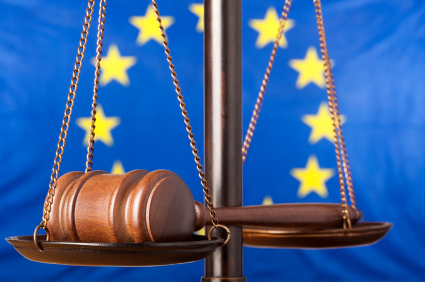
Europe is increasingly adopting its own form of adversarial legalism.
The process of European integration is transforming traditional patterns of law and regulation across the European Union (EU). A rich literature on comparative regulatory styles going back more than three decades highlights how the regulatory styles that long prevailed in western European democracies differed from the American regulatory style. The US is, as Professor Robert Kagan of the University of California, Berkeley, put it, the land of “adversarial legalism,” where regulation relies on detailed, transparent legal norms, adversarial approaches to enforcement and dispute resolution, active judicial review, and costly legal contestation often involving private actors empowered to enforce regulation. By comparison, the modes of regulation that prevailed across western Europe were more cooperative, informal, opaque, and less reliant on the involvement of lawyers and courts. In fact, regulation through litigation was unheard of in European democracies. Instead, across the variety of European national regulatory systems, closed networks of bureaucrats and regulated interests developed regulatory policy in concert, with little interference from courts and private litigants.
Today, this is changing. While European regulatory regimes are not converging directly on the American system, patterns of law and regulation in the European Union are shifting toward a distinctive European variant of American adversarial legalism, a variant I call “Eurolegalism.” Eurolegalism shares the defining characteristics of American-style adversarial legalism: an emphasis on transparent, judicially enforceable legal norms (often framed as “rights”), adversarial enforcement by public authorities, and empowerment of private actors to enforce legal norms. However, due to the moderating influence of entrenched national legal institutions in Europe, Eurolegalism is a more restrained and sedate form of adversarial legalism than that found in the United States.
Economic liberalization and political fragmentation associated with the process of European integration are generating political incentives and functional pressures that encourage EU policymakers to rely on Eurolegalism as a mode of governance. The drive to establish the EU’s single market has undermined traditional regulatory regimes that relied on cooperation, informality, and relationships between regulators and repeat market players. As national regulatory regimes break down in this liberalized environment, policymakers find it necessary to reregulate at the EU level. When policymakers do so, they turn to more formal, transparent and juridical approaches to deal with the greater variety of market participants.
When regulation shifts to the EU level, it takes place within the EU’s institutional structure, in which political power is highly fragmented, the administration is weak, and the judiciary is quite powerful. Political power in the EU is fragmented both horizontally – between the Council, Parliament, and Commission – and vertically – between the EU and its member states. While critics may complain about the EU’s supposedly huge bureaucracy, the EU’s bureaucracy is actually tiny (with around 25,000 staff) and its budget modest. These weak and fragmented political structures encourage lawmakers to “judicialize” governance, adopting laws with judicially enforceable goals, procedural requirements, and rights, and inviting private parties to supplement the EU’s limited enforcement capacity by enforcing EU legal norms before national courts.
In other words, Eurolegalism is emerging in the EU for much the same reason that adversarial legalism emerged in the United States, where Kagan emphasized that the combination of “fragmented governmental authority” and “fragmented economic power” were crucial for the creation of the American legal style. Similarly, the EU’s weak, fragmented institutional structure and its ongoing market integration have unleashed causal processes that encourage policy makers to enact strict, transparent regulations backed by the threat of enforcement litigation by public authorities or private actors.
This account is at odds with much of the literature on the EU’s “new modes of governance.” That literature suggests that the EU is encouraging the proliferation of “new modes of governance,” including framework directives, soft law, co-regulation, self-regulation, voluntary agreements, and the “open method of coordination,” which rely on flexibility, deliberation and voluntary cooperation amongst stakeholders. In contrast, I have found that while the EU’s experiments with such “new modes of governance” are at the margins of its policymaking, its predominant mode of governance is based on coercive, judicial enforcement of detailed legal norms by both public authorities and private actors.
The EU is a community built on the rule of law. Formal law, courts, lawyers and litigation have played central roles in the process of European integration. As the scope of EU policymaking continues to expand further beyond the reach of its administrative capacity, the EU legal system is expected to play an even greater role. We can expect to see Eurolegalism continue to spread and to transform patterns of law and regulation across EU member states, but should we welcome this?
Critics might view Eurolegalism as a kind of American disease. The growing role of law, lawyers, and litigation in the EU will bring with it some of the pathologies seen in the United States, such as high legal expenses, slow, conflictual regulatory procedures, and adversarial relationships between stakeholders in the policy process. But Eurolegalism has virtues: it tends to increase the transparency of regulatory processes, enhance access to justice, and ultimately may make public officials more accountable for their policy decisions. Some leaders even hope that by promoting a “Europe of rights,” the EU legal system can help win greater public support for the EU.
Whether the positives will outweigh the negatives remains to be seen. What is clear is that the rise of Eurolegalism will affect not just legal and regulatory regimes, but democracy itself. The increasing focus on individual rights may undermine the culture of compromise that is vital to the consensual models of democracy in many European countries. Judicialization and the tendency to frame policies as rights will likely make it more difficult for European democracies to pursue policies formulated to serve broad public interests where these conflict with individual rights.




